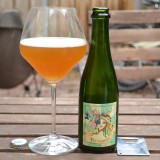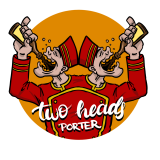As people descend the rabbit hole that is the world of good beer, one of the first things many do is bone-up on hops. Beer lovers love a chat about their favourite hops, which hop is in which beer, and what hops they don’t like.
Increasingly I’ve found from a drinker’s perspective that it doesn’t really matter to me. The more I drink, the more it’s clear that (for the most part), breweries can make beers with hops I don’t like and they’ll be great, while others can make beers with hops I love and they’ll be terrible.
However, now beer is more than just a hobby, I do at times need to be up to speed with what hops do what. If nothing to satisfy consumer curiosity when talking in public or writing an article. Modern beer drinkers are thirsty for information and many homebrew in their spare time, so knowing what hops contribute what flavour is important. As a result, when I got a press release for a new e-book claiming to be a hop dictionary of sorts, my interested was piqued.
From the release:
Like wine grapes, each genetically distinct variety of hop bitters differently, flavors differently and brings unique aromatics to a beer. Some taste like lemon, others like strawberry. Some smell like pine, others like elderflower. There are so many varieties vying for attention, making sense of them all has been problematic.
In an effort to address the confusion, 265 different varieties — both past and present — have recently been catalogued in what could be an important step forward for brewers everywhere.
Avid brewer and hopslist.com founder Julian Healey has spent more than two years researching beer hops to create The Hops List – his first book and what he describes as “the official dictionary for beer hops”.
Touted as an essential resource for brewers, Julian says the book aims to open brewers’ eyes to new varieties and help them better utilize the ones they already use.
“It’s 2016. It’s sacrilege to brew a beer and just think ‘chuck some of this hop in to make it bitter and some of that hop to make it smell like beer’. You might have been forgiven for thinking like that in the 90’s, but not today,” says Julian.
Hopslist is indeed great reference to the world of hops. Skimming through, I’ve found a handful of bits and pieces that will be useful to me.
Fortunately for me, the email also came with a free pdf of the book.
There has been a lot of work into this resource, and it’s as comprehensive as anything I’ve seen before. While some may have concerns about using a collection of websites as primary sources, the scope of the work is so large that as a first edition and jumping off point it makes sense to start with available information and build from there. My initial read didn’t come across anything that seemed wrong and everything is cross referenced where possible.
Comments from brewers such as Garret Oliver (Brooklyn), or Tim Hawn (Brewmaster at Dogfish Head); alongside comments harvested from homebrew forums also gives practical working knowledge and insight. Having that side-by-side with the raw data is an excellent idea.
While it doesn’t impact the overall information, another issue I’ve found is that it could do with a good proof read. Knowing how many mistakes I make in final edits, I understand the value of a quality proofreader and this would really benefit from pedantic editor to weed out the errant spellings or punctuation. Or even consistency between “hops” and “hop” (but I’m still the only one who cares about that).
As a whole though, this is a resource I’m sure many will find useful. Having it loaded onto your phone when shopping for hops, talking hops, or wondering “wtf is Azacca?” while staring at a taplist (something that happened to me very recently) would be incredibly helpful. The information is there, presented uniformly, and with 265 varieties; comprehensive. A great idea that is executed in a simple and effective format.
I hope it becomes the basis for an evolving resource. I will be putting a copy onto my phone for the next time someone asks me something obscure like where Greenburg is from.
“I’ll answer that in a second, I just need to pop to the toilet”, I’ll respond, one hand on my phone.




If only it was in an App form as well. Searching for a hop whilst researching recipes through a PDF is a pain.
Maybe this will be the next step!